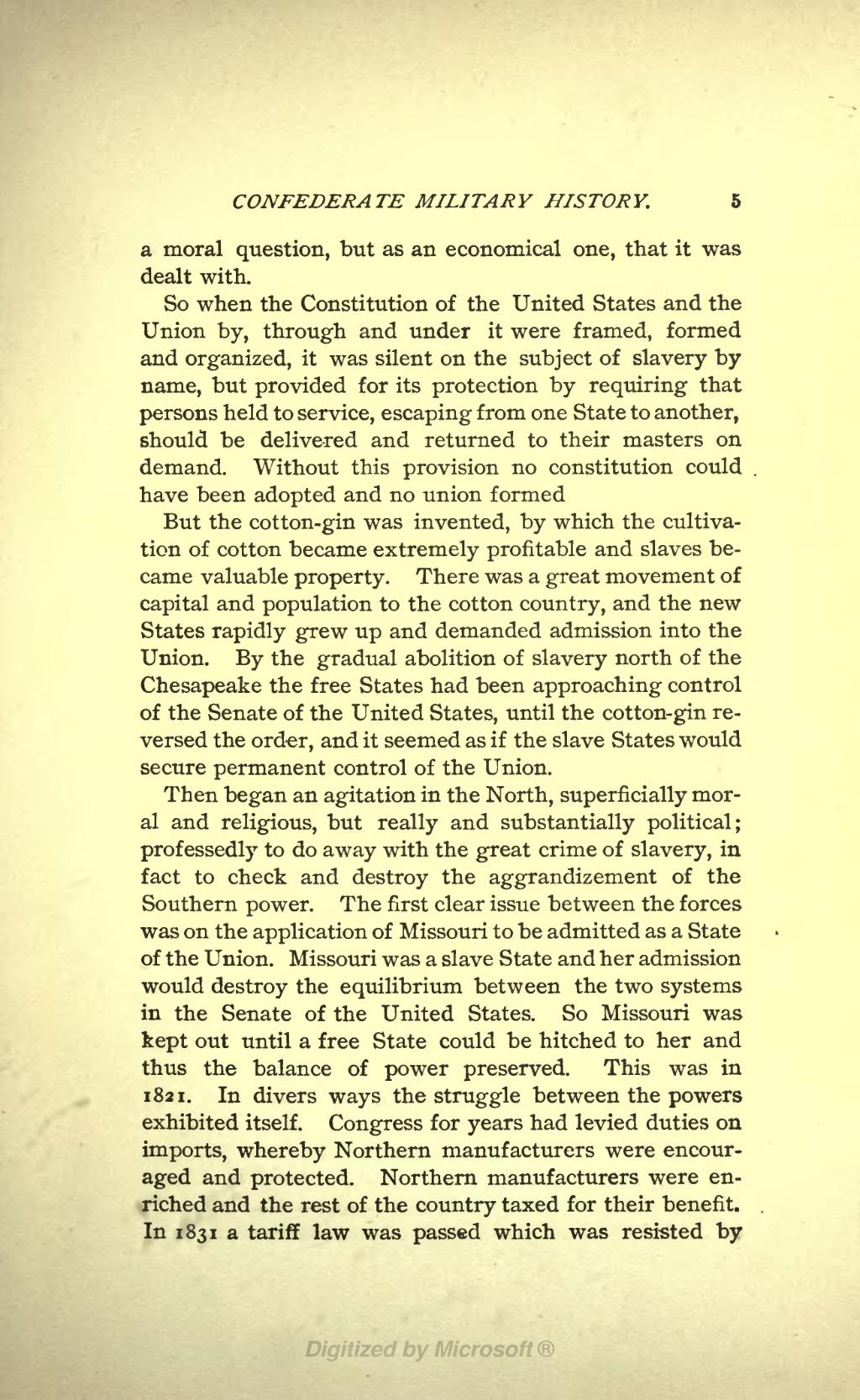a moral question, but as an economical one, that it was dealt with.
So when the Constitution of the United States and the Union by, through and under it were framed, formed and organized, it was silent on the subject of slavery by name, but provided for its protection by requiring that persons held to service, escaping from one State to another, should be delivered and returned to their masters on demand. Without this provision no constitution could have been adopted and no union formed.
But the cotton-gin was invented, by which the cultivation of cotton became extremely profitable and slaves became valuable property. There was a great movement of capital and population to the cotton country, and the new States rapidly grew up and demanded admission into the Union. By the gradual abolition of slavery north of the Chesapeake the free States had been approaching control of the Senate of the United States, until the cotton-gin reversed the order, and it seemed as if the slave States would secure permanent control of the Union.
Then began an agitation in the North, superficially moral and religious, but really and substantially political; professedly to do away with the great crime of slavery, in fact to check and destroy the aggrandizement of the Southern power. The first clear issue between the forces was on the application of Missouri to be admitted as a State of the Union. Missouri was a slave State and her admission would destroy the equilibrium between the two systems in the Senate of the United States. So Missouri was kept out until a free State could be hitched to her and thus the balance of power preserved. This was in 1821. In divers ways the struggle between the powers exhibited itself. Congress for years had levied duties on imports, whereby Northern manufacturers were encouraged and protected. Northern manufacturers were enriched and the rest of the country taxed for their benefit. In 1831 a tariff law was passed which was resisted by
